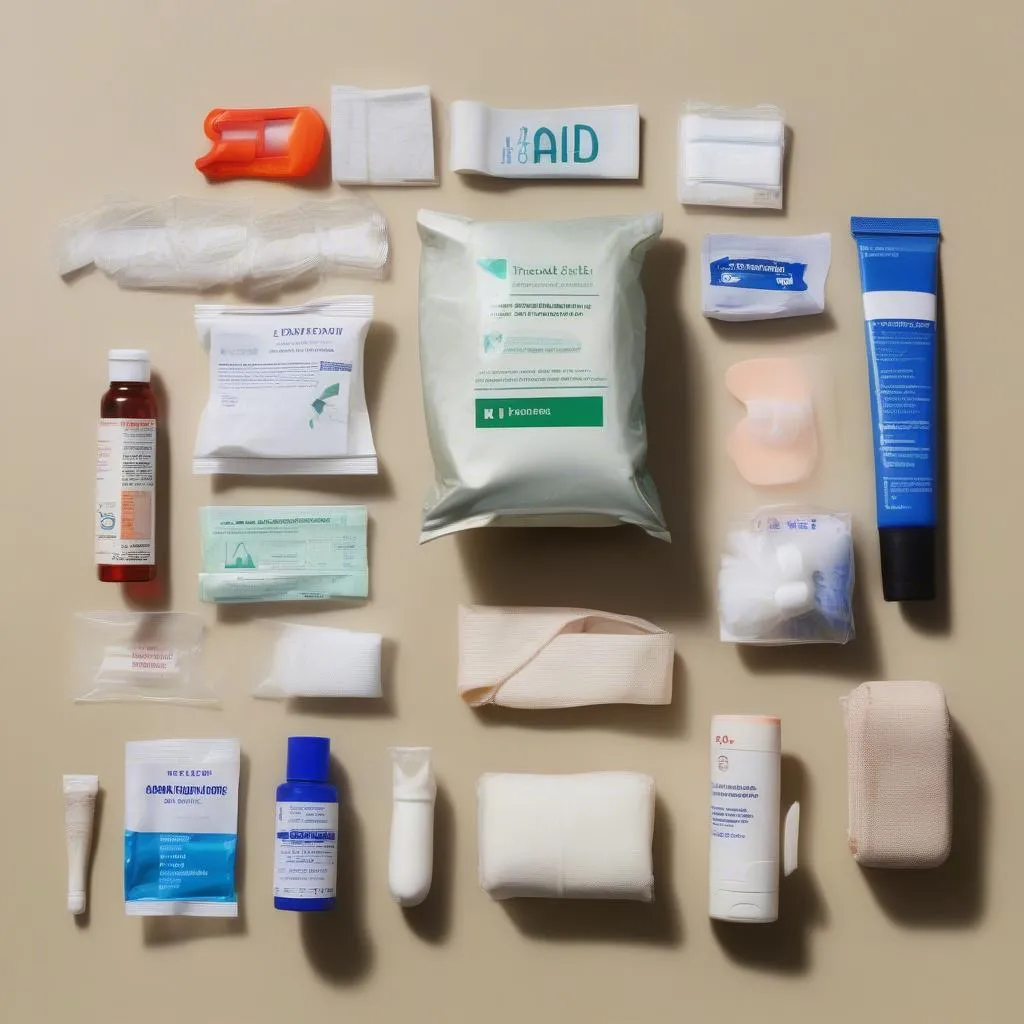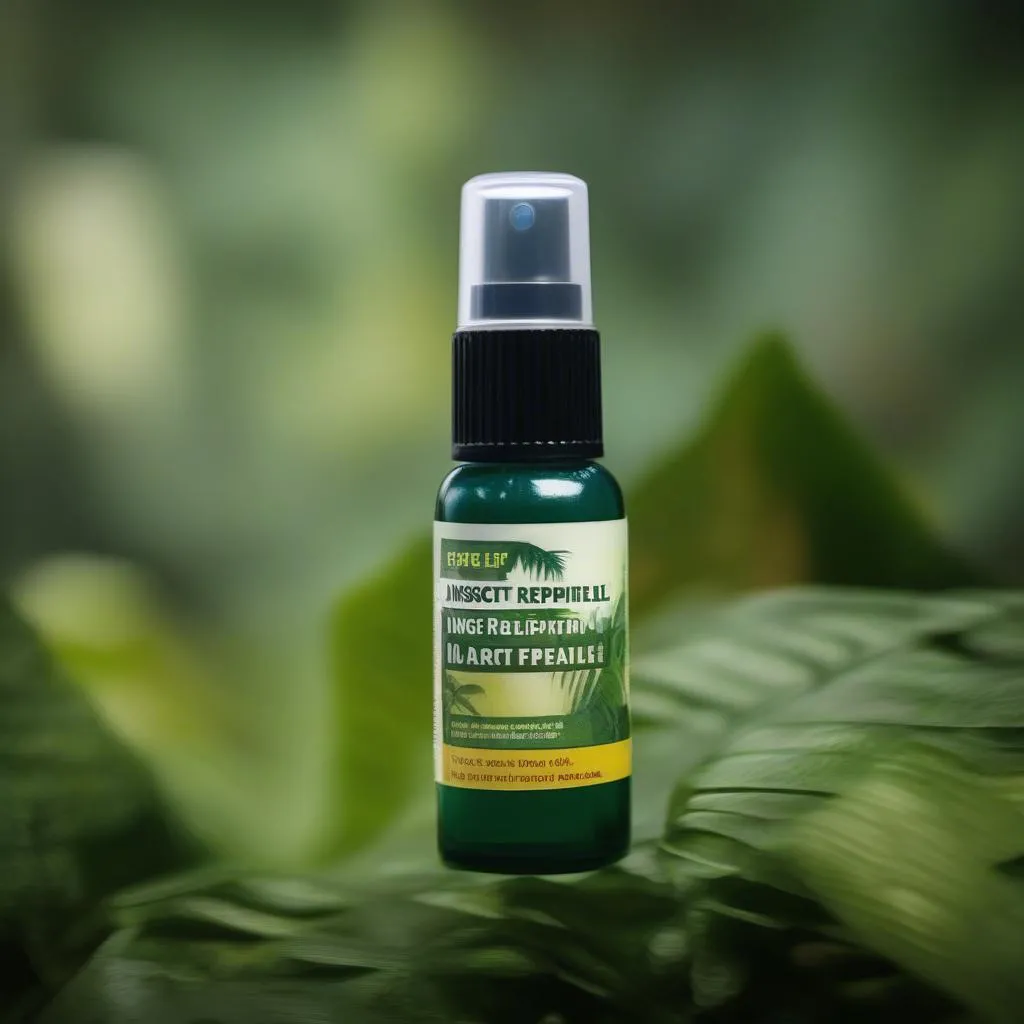Remember that time you were in the bustling streets of Bangkok, trying to navigate a world of delicious street food and ornate temples, only to be struck down by a nasty headache? Or when you were hiking the Inca Trail to Machu Picchu, and a sudden bout of altitude sickness threatened to derail your entire adventure? We’ve all been there. Packing the right medicine can make the difference between a travel story and a travel nightmare.
But don’t worry, packing your travel first-aid kit doesn’t have to be a chore! In this comprehensive guide, we’ll walk you through everything you need to know about How To Pack Medicine For Travel, ensuring you’re prepared for anything your next trip throws your way.
Essential Medications for Every Traveler
Whether you’re trekking through the Amazon rainforest or exploring the bustling markets of Marrakech, there are some essential medications every traveler should pack. Consider this your basic travel first-aid kit, ready to tackle common travel ailments:
1. Pain Relievers: Your Travel Companions
Nothing puts a damper on a day of exploring like a throbbing headache or muscle soreness. Pack over-the-counter pain relievers like ibuprofen (Advil, Motrin) or acetaminophen (Tylenol) to combat aches, pains, and reduce fever.
2. Digestive Aids: Keeping Your Gut Happy
New cuisines and different water sources are part of the adventure, but they can sometimes lead to an unsettled stomach. Pack antidiarrheal medication like loperamide (Imodium) and bismuth subsalicylate (Pepto-Bismol) to tackle traveler’s diarrhea, as well as antacids for heartburn and indigestion.
3. Allergy Relief: Breathe Easy, Explore Freely
Even if you don’t typically suffer from allergies, changes in climate and environment can trigger unexpected reactions. Pack a non-drowsy antihistamine like loratadine (Claritin) or cetirizine (Zyrtec) to combat sneezing, itching, and watery eyes.
4. First Aid Essentials: Be Prepared for the Unexpected
Accidents can happen anywhere, so pack a basic first-aid kit with antiseptic wipes, antibiotic cream, bandages, blister plasters, and a small pair of scissors.
 Travel First Aid Kit
Travel First Aid Kit
Packing Your Medicine: Tips and Tricks
1. Consult Your Doctor: Your Personalized Prescription
Before any trip, schedule a check-up with your doctor, especially if you have pre-existing medical conditions or are traveling to areas with potential health risks. They can advise on necessary vaccinations, provide prescriptions, and offer personalized advice for your destination.
2. Pack Smart, Pack Safe: Keep It Organized
Invest in a travel-sized, waterproof, and clearly labeled toiletry bag to keep your medications organized. Keep medicines in their original packaging with prescription labels attached to avoid any confusion with airport security.
Pro Tip: Consider packing a small, foldable cooler bag if you’re traveling with temperature-sensitive medications.
3. Carry-On is Key: Avoid Checked Baggage Blues
Always pack your medications in your carry-on luggage. This ensures you have access to them during your flight and prevents any mishaps with lost luggage.
Important Note: Familiarize yourself with the TSA guidelines for traveling with medications, especially liquids.
LSI Keywords: Expanding Your Search Horizons
When researching how to pack medicine for travel, you might come across these LSI keywords:
- Travel first-aid kit essentials
- Medications allowed in carry-on luggage
- TSA rules for traveling with medicine
- Prescription medication for travel
- Travel insurance for medical emergencies
- Packing for a trip with chronic illness
- Travel vaccinations and immunizations
Frequently Asked Questions: Your Travel Medicine Queries Answered
Can I bring liquids over 3.4 ounces in my carry-on for medication?
Yes, you can bring medically necessary liquids in quantities larger than 3.4 ounces in your carry-on bag. However, you need to declare these items to TSA officers at the security checkpoint for separate screening.
Do I need a doctor’s note for my prescription medications?
It’s highly recommended to carry a copy of your prescription or a doctor’s note, especially for medications with controlled substances.
Should I pack any destination-specific medications?
Absolutely! Research your destination and consider packing medications for common ailments associated with the climate or activities you’ll be engaging in. For example, altitude sickness medication for trekking in the Himalayas or insect repellent for tropical destinations.
Travel Story Time: A Lesson Learned
Last summer, I embarked on a long-awaited backpacking trip across Southeast Asia. I was so caught up in planning my itinerary and packing my backpack that I completely forgot to pack mosquito repellent. One night, while camping in the jungles of northern Thailand, I was bombarded by mosquitos.
That night, I barely slept a wink, covered in itchy bites. From that day on, I vowed to always pack insect repellent, especially when traveling to tropical regions.
 Tropical Insect Repellent
Tropical Insect Repellent
Travelcar.edu.vn: Your Trusted Travel Companion
Planning a trip can be overwhelming, but TRAVELCAR.edu.vn is here to simplify your journey. From destination guides to packing tips and travel advice, we’ve got you covered. Discover the world with confidence, knowing you’re equipped with the knowledge and resources to make your next adventure unforgettable.
Embrace the Journey, Pack Wisely
Packing the right medicine is just one piece of the puzzle when it comes to travel preparation. Remember to pack smartly, stay informed, and most importantly, enjoy the journey!
What are your must-have travel medications? Share your packing tips and travel stories in the comments below!

